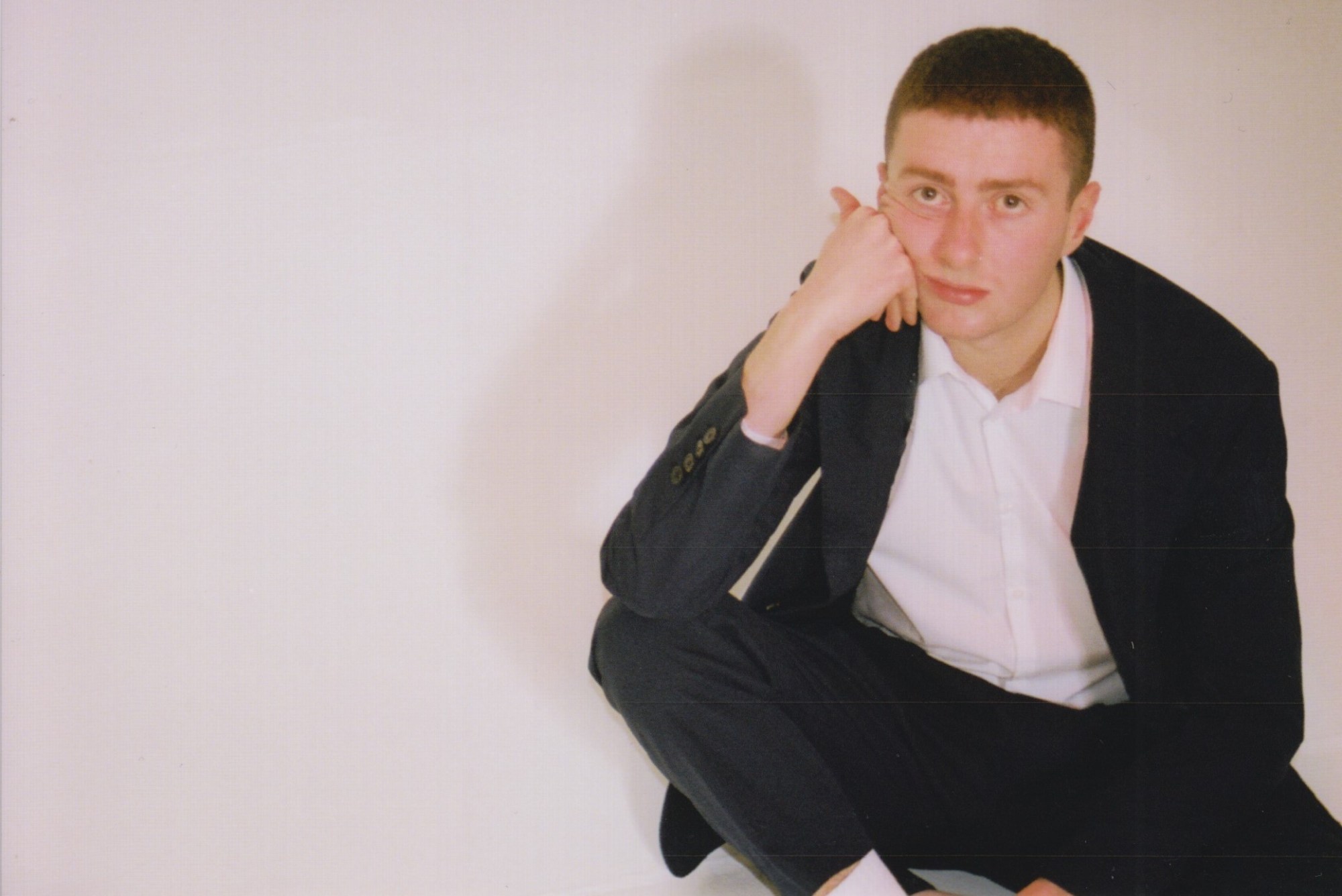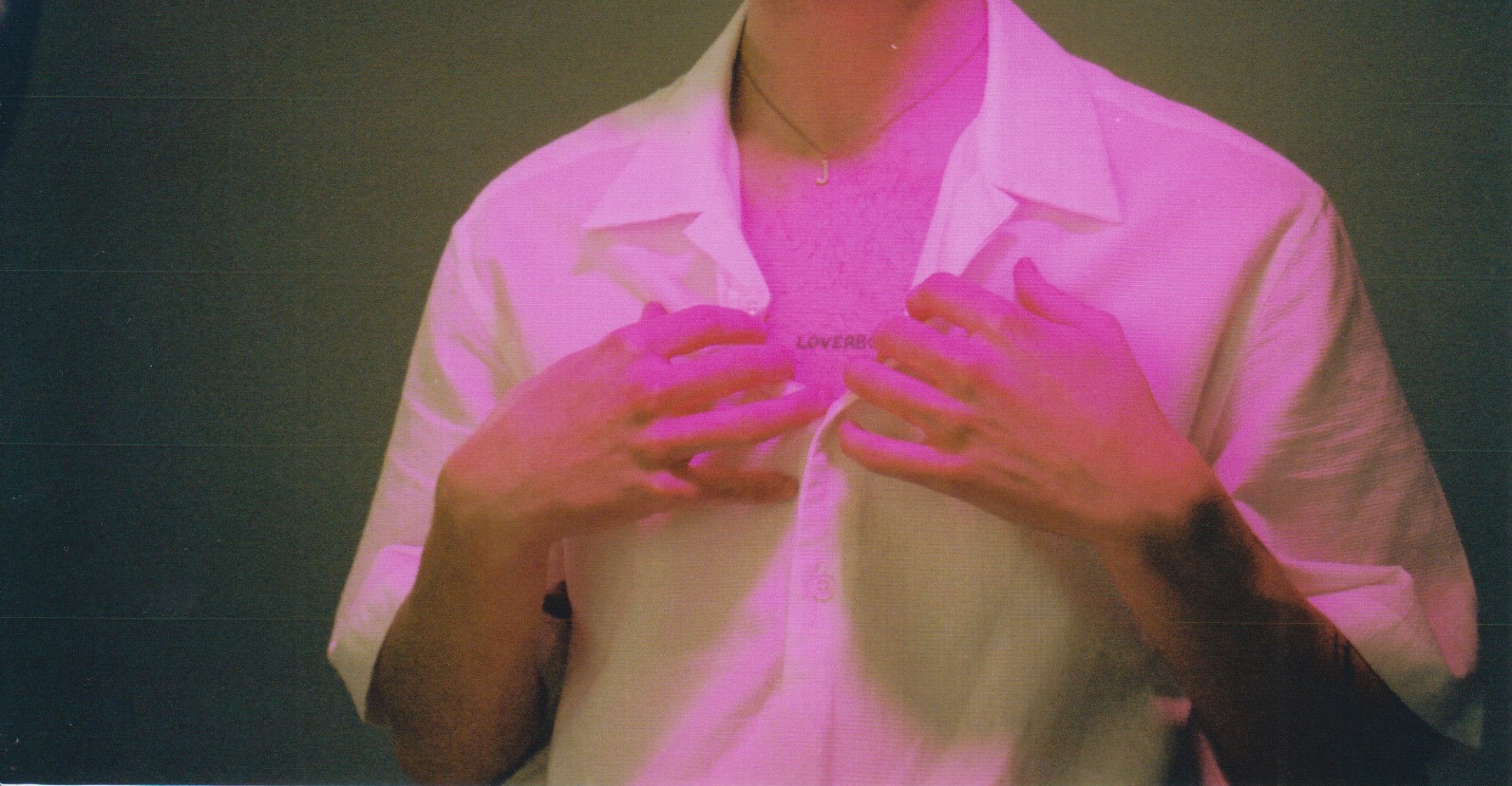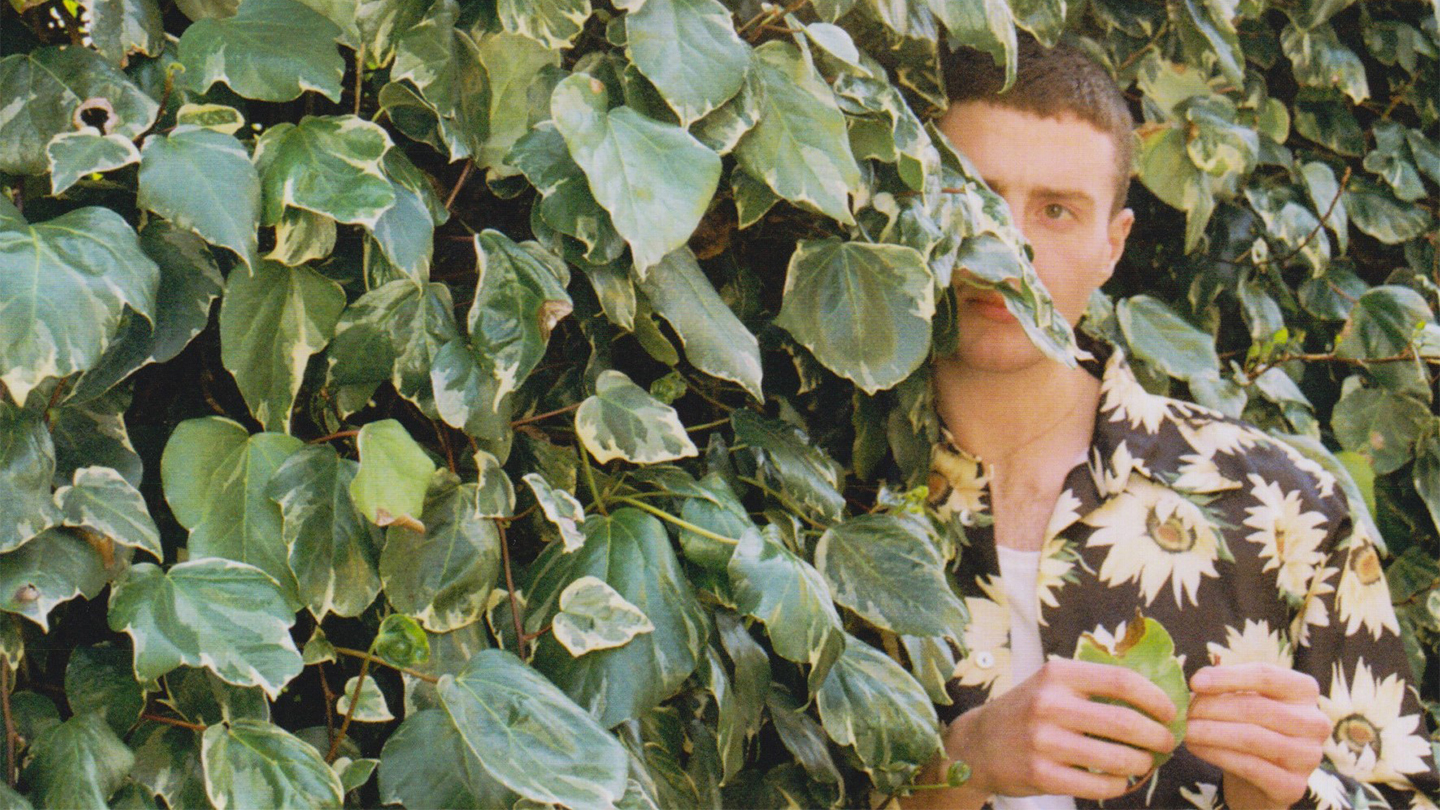A few days ago, Joesef was at his mum’s house in Glasgow’s east end. He went out to the grocery van to grab her some bread, and was surprised to be met by a fan who grabbed him for a selfie. It’s barely been a year since the 24-year-old alt-pop kid first released music, but after a trio of sold-out debut shows at his home city’s most legendary venue, King Tuts Wah Wah Hut, he’s starting to get recognised in the streets now. “Cannae even get a loaf of bread anymore, man!” he jokes, lounging about in the green room before his debut London show. He’s just sold out that one too.
Truth be told, Joesef doesn’t seem to know what he’s doing or how he wound up here, but naturally, he’s very good at it anyway. The 24-year-old writes alternative pop tunes with soul, swagger and sensitivity, as if someone’s mashed Amy Winehouse and Rex Orange County together in some miraculous music machine and raised whatever it created in Scottish suburbia. The whole hysteria feels slightly incongruous to his humble upbringings right now. “I try to not take it in because I think I’ll lose my mind,” he grins. “I’m taking it as it comes. I got sacked from a bar back in March and I haven’t been back to work yet. It’s class ‘cause I don’t need to work there anymore. Everything’s all a laugh, innit? Easy breezy.” Easy breezy is, perhaps, the best way to describe the languorous and lovely nature of his debut EP, ‘Play Me Something Nice’. It’s love and heartbreak spun into sonic honey.
2016 was the year it all started to make sense to him. At the age of 20, he fell in love with someone so hard that he now has those two digits tattooed on his ribcage to remind him of those times. “It was a pure summer of love,” he smiles, “and it was my first boy as well.” He compares that experience, after years of dating girls, to being hit by a train. For months, the pair kept their love secret, fearing the reactions of their families at first. But behind closed doors, something special was flourishing: “It was like a film. I got a pure beemer [Scottish slang for flustered and embarrassed] and could hear romantic background music playing when I saw him!”
When he came out as bisexual, it was hardly a big deal. But that initial hesitation, we say, might be a Scottish thing; I grew up 40 minutes from him and took my time telling my family I was queer too. “It goes without saying that, growing up in the east end of Glasgow being anything other than a big straight boy has negative connotations,” Joesef says. “But it was never a massive thing for me, which I’m really lucky about because it is for some people. I’ve never really had any hassle about it.” Times have started to change, I suggest. “Aye,” he responds, pausing to let it sink in before revelling in that thought: “Fuckin’ yass!”
That two year relationship, as well as how it eventually came to an end, inspired the songs of Play Me Something Nice, six tracks of flourishing romance, fuck ups and bad decisions that feel good in the moment. That first queer courtship might’ve given him a “the world’s ending kinda buzz”, but he has the rare ability to make even the most dismal of situations sound quite sweet. The grounded title track sees him battling with that awful feeling of wanting the company of someone you’ve parted with. “I know that it’s over,” he sings, before sidelining that fact for a romantic fate more satisfying: “So do you wanna come over ‘cause I’m cold and I’m tired of lying to myself? I need you here with me.”

Although a career as a musician wasn’t always in his sightlines as a kid, Joesef was surrounded by the influences that imbue much of his sound now from an early age. “It was always old music, even when I wis a baby. A pure foetus singin’ Al Green!” That was his mum’s touch: she appreciated the masters of mid-20th century soul, but always made room for a little bit of 90s pop too; the Spice Girls were a really big thing in his house too. And that wasn’t his only formative pop experience: “Justice for Artpop!” he grins, when I asked if, like most queer kids growing up in the 2010s, he had a soft spot for Lady Gaga. “I pure liked [her] when she first came out but I kept it a secret, but as I got older, I realised she’s an amazing musician. She does that jazz thing with Tony Bennett and he’s ma guy! But aye, she’s been away for a bit! Too busy winning Oscars.”
That penchant for poppiness manifests in the EP through Joesef’s knack for melody; you’ll find yourself humming these songs days after you’ve heard them. It’s wild to think they’re not the product of a dozens-strong writing room, but of a Glaswegian boy lying in his boxers, severely hungover and deep in his feelings, which is how most of them came to be. They’re abrasively introspective at times; the kind of stories most keep secret. The EP’s closer, Don’t Give In, is deceptively sore. Lyrically, it tells a tale of Joesef, the boy he loves and another, waiting in the wings to steal his boy away from him. “You don’t know how it hurts when you say you wish you met me first,” he sings. “Somehow that feels worse.” Still, if you talk to him about this, he can shrug it off and make a joke about it; never blinded by his own talents. Humble. Northern.
It’s this pluckiness and embrace of his strange circumstances that makes Joesef’s ascent to fame even sweeter. His London show, at the cabaret-esque club Omeara, is peppered with record label executives; everyone’s keen to snatch him up and shape him into the next big thing. But there’s something incredibly grounded about him that suggests he won’t be co-opted into some pretty major label package.

After all, once you’ve been through a heartbreak your world view changes, and you seem to know bullshit from what’s good. Does Joesef know everything there is to know about love now? He exhales, exacerbated at the grandiosity of such a statement: “I dunno man, it’s unpredictable and extremely volatile!” he says. “It’s like a wee baby: you’ve got to treat it good. If you treat it bad, something bad will happen to it!
“I guess I just feel things very intensely,” he insists. “I don’t think I know anything about love, but who does?”
